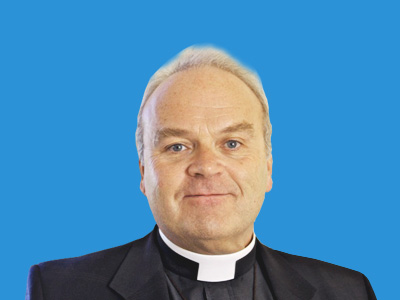
St. Proclus: “At Christmas we saw a weak baby, giving proof of our weakness. In today’s feast, we see a perfect man, hinting at the perfect Son who proceeds from the all-perfect Father.”
By Deacon Keith Fournier, JD, MTS, MPhil
6 January 2024
The Feast of the Epiphany is observed on January 6 in the Latin Rite of the Catholic Church. It will be celebrated on Sunday, January 7, 2024 in the United States. Some of the most beautiful readings in the Office of Readings can be found in the Liturgy of the Hours, the official prayer of the whole church, on the days between the Feast of the Epiphany and the Baptism of the Lord.
However, given odd calendaring in 2024, some of these readings will unfortunately be missed because the Baptism of the Lord will be celebrated on the Monday following, January 8, 2024.
These readings touch upon the deeper meaning of both the Epiphany, which we celebrate this coming Sunday, and the Baptism of the Lord Jesus in the Jordan. In the Eastern Churches, Catholic and Orthodox, the Epiphany and the Baptism of the Lord are joined. The Baptism of the Lord is called the Theophany, revealing the Trinity, as the Father speaks, the Son is immersed in the waters of the Jordan, and the Holy Spirit is revealed.
Here, as an example, are a few sentences from an ancient homily given by the Bishop of Constantinople, St. Proclus:
“At Christmas we saw a weak baby, giving proof of our weakness. In today’s feast, we see a perfect man, hinting at the perfect Son who proceeds from the all-perfect Father. At Christmas the King puts on the royal robe of his body; at Epiphany the very source enfolds, and, as it were, clothes the river. Come then and see new and astounding miracles: the Sun of righteousness washing in the Jordan, fire immersed in water, God sanctified by the ministry of man.”
The Feast of the Baptism of the Lord marks the beginning of what is called the “public” ministry of Jesus. He was thirty years old. He died His redemptive death at Golgotha when He was only thirty-three. However, He also spent thirty redemptive years of life in what writers have sometimes called His “hidden years” in Nazareth’s school, “growing in wisdom and stature”. (Luke 2:52)
Those years were not hidden in the sense of unimportant. It simply means that we do not find much about them in the Gospel accounts. However, they are rich with meaning, revealing the deeper truths of our faith and its invitation to each one of us who bear the name Christian to live our lives now in a new way by living them in Him.
Jesus, Perfect God and Perfect Man, the Incarnate Word, Son of God, and Son of Mary, gave the same glory to the Father when he was working with wood in the workshop of Nazareth as he would years later when he raised a friend named Lazarus from the dead. From the moment of His conception, the Son of God recapitulated (a favored word of the great Church father, Bishop Irenaeus of Lyons) the entire human experience, re-creating and beginning humanity anew.
During those years, in the hearth of a human family the Son of God sanctified and transformed every aspect of ordinary human life. His redemptive and transforming work began in the first home of the whole human race, His mother’s womb. Jesus was a Redeemer in the Womb, beginning His Incarnation as an Embryonic Person, to use the phrase from the Instruction from the Holy See entitled “On the Dignity of every Human Person”. From within the Living tabernacle of the Womb of the All-Holy Virgin, He began His redemptive mission.
This child of Mary’s was born, and heaven touched earth. We commemorated that Holy Nativity just days ago. At the breast of his mother, He elevated the already holy wonder and dignity of the vocation of motherhood. In His sacred humanity he was nurtured, a sign of the beauty of the human experience of love, growth, and maturation.
He was raised by a human mother and father; and parenting and family life forever took on a deeper meaning in the domestic church of the family. At the bench of Joseph, the carpenter; he learned the carpenter’s trade and sanctified all human work as a participation in the continuing work of both creation and redemption.
The word Epiphany means a manifestation, a making present, a revealing. There is no doubt that even during those so called “hidden” years the plan, purpose and redemptive implications of the entire saving life, death, ascension, and resurrection of Jesus were being manifested and revealed. They reveal how the ordinary becomes extraordinary when lived in communion with God the Father.
That can happen in each of our lives as well. The choice is ours.

Deacon Keith A. Fournier, the Editor in Chief of Catholic Online, is also the Founder and Chairman of Common Good Foundation and Common Good Alliance. A Catholic Deacon of the Diocese of Richmond, Virginia, he and his wife Laurine have five grown children and seven grandchildren. He is a human rights lawyer and public policy advocate who has long been active at the intersection of faith and culture. He served as the first and founding Executive Director of the American Center for Law and Justice in the nineteen nineties. Deacon Fournier is the Dean and Chaplain of Catholic Online School, a project of Your Catholic Voice Foundation.
Leave a Reply